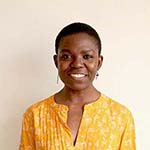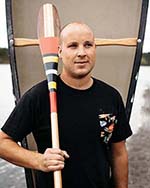Submit Your Best Truths!

Writers from around the world are invited to enter their personal essays, memoirs, narrative nonfiction pieces, social commentaries, travel writing essays, historical accounts, biographies, etc. One winner will take home the $1,000 grand prize!
The judge for 2019 is Yasuko Thanh. Look for an interview with her in our upcoming July Malahat lite e-newsletter!
Entry fee comes with a complimentary one-year print subscription:
$35 CAD for Canadian entries
$40 USD for entries from the USA
$45 USD for entries from elsewhere
Full contest information on the Malahat Review website.
Spring Issue Interviews with Three Poets
Jane Akweley Odartey
 Malahat Review volunteer Chris Horne talks with Jane Akweley Odartey about family, first (and second, and third) languages, and what influenced her poem, "Conversing with the Farmers."
Malahat Review volunteer Chris Horne talks with Jane Akweley Odartey about family, first (and second, and third) languages, and what influenced her poem, "Conversing with the Farmers."
CH: How do patterns of breath and the orality of words play into your process? Does the lyrical flow of your poetry determine its structure or vice versa?
JAO: One could say the flux of words that a page extracts from me become puzzle pieces that sync together through their own music. I suppose my Mother’s tongue and first language, Krobo, a quite rich lyrical language, influences how I perceive and compose words in all other languages. And yes, I entertain patterns of breath in all my work because it is at once life and poetry. Breath is dance to the music of the heartbeat, and every individual dances, in breathing, to that music which plays solely for them and which without we cease to be, at least in the realm of the corporeal—I am at once a fan of the gross and subtle heart, although both frighten me, and I write, often, without a conscious agenda, in the hopes of learning my heart’s language.
Read the rest of Jane's interview on our website.
Conor Kerr
 Malahat Review volunteer James Kendrick talks with Conor Kerr about collectivism, chopping wood, and reconnecting with his community in his poem, "Directions to the Culture Grounds."
Malahat Review volunteer James Kendrick talks with Conor Kerr about collectivism, chopping wood, and reconnecting with his community in his poem, "Directions to the Culture Grounds."
JK: In your poem, geographical space takes on great significance. Could you talk about this space, what it is, and why you chose it as the subject of this poem?
CK: It’s all about the land. I felt so lost for so long without knowing why and now I believe it was directly because of a lack of/absence from my Metis culture and that I belong and need to be/walk/harvest in my traditional territory. I spent most of my university years pretending to be someone I wasn’t, which basically just led to me being an asshole alcoholic. That guy at the party. So despite that I stumbled into this space through what I strongly believe wasn’t just luck but an invisible gust of hot snotty moose breath pushing me forward, and met Bob Cardinal, an Elder on Enoch Cree Nation. He helped me so much in reconnecting back with my family, the community, my self, and building back up my confidence in who I am as a Metis person. And through all of that we cut wood out at this space, we participated in ceremony, we hunted moose, we wandered through the woods, fought with generators and disappearing tools, ate good food, and chopped more wood.
Read the rest of Conor's interview on our website.
Alycia Pirmohamed
 Malahat Review editorial assistant Kyra Kristmanson talks with Alycia Pirmohamed about themes of water, Asian American women writers, and who and what inspired her poem, "Held In."
Malahat Review editorial assistant Kyra Kristmanson talks with Alycia Pirmohamed about themes of water, Asian American women writers, and who and what inspired her poem, "Held In."
KK: Were you inspired by something in particular or did the poem materialize when you sat down to write?
AP: I wrote this poem at a time of major transition in my life—and although there are symbols and moments within the poem that lean toward specific people and relationships, it ultimately holds together on the idea of change and growth of self. It was also initially prompted by place. I moved to Oregon for my MFA, which meant moving away from the communities and places I loved for the possibility of something new. My future was unfurling to look like something completely different than I expected. “Held In” grapples with that feeling: how does a landscape, an environment, change a body? How much is altered, and what essential aspects of you are kept in place? What do we harbour and what do we make peace with letting go of, given time and distance?
Read the rest of Alycia's interview on our website.